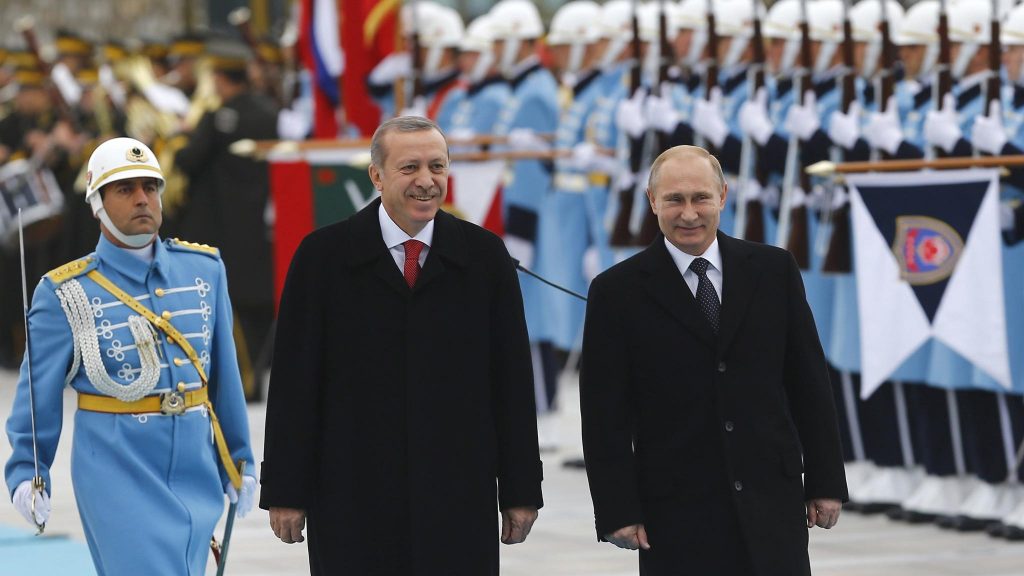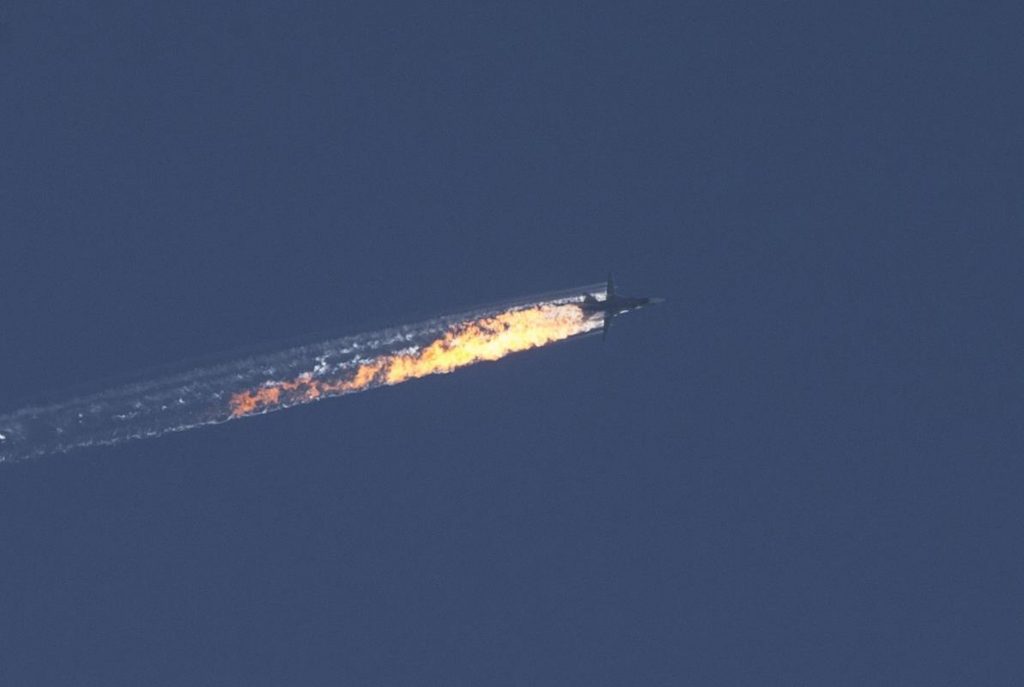The Regional Dimension of Turkish-Russian Relations: From Crisis to Normalization
Although many analysts tend to highlight the importance of economic links between Ankara and Moscow particularly in trade, energy and tourism, it should be indicated that there is also a very powerful regional dimension of the Turkish-Russian relationship. A certain degree of political dialogue between the two countries has always been crucial in order to maintain peace and stability in a wide region stretching from the Balkans to Central Asia. In this regard, during the seven months that followed the SU-24 fighter jet incident, the strained relations between Ankara and Moscow have quite negatively affected the geopolitical balances in the three sub-regions of Eurasia: the Middle East, Caucasus and Black Sea.
From Crisis to Normalization
As two rising powers with significant influence over the Eurasian geopolitics, Turkey and Russia have developed very close political and economic links with each other throughout the 2000s. By the end of the decade, Russia became one of Turkey’s main trade partners as well as the major supplier of the natural gas consumed in Turkey. The two countries also developed a close political dialogue with regard to the regional conflicts in the Middle East, Caucasus and Black Sea. For instance, Ankara’s reactions to both the Russian-Georgian war in 2008 and annexation of Crimea in 2014 were remarkably muted in comparison with the harsh reactions of its Western allies.
Although Ankara and Moscow tried to maintain their good relations in the wake of the Arab uprisings despite their growing differences about the Syrian civil war, this became a difficult task especially after September 30, 2015, when Moscow started direct airstrikes in Syria to prop up the regime of Bashar al-Assad. In a matter of weeks, Turkish-Russian relations deteriorated quickly due to the increased Russian military presence in the region.
Eventually, on November 24, the Turkish armed forces shot down a Russian SU-24 fighter jet on the grounds that it had been violating Turkey’s airspace. Turkey immediately carried the issue to the agenda of NATO and refused to apologize for its action, while Russia retaliated by declaring a series of economic sanctions against Turkey and accusing the Turkish government of helping ISIS and other terrorist groups in Syria.
Relations between the two countries were almost completely frozen until June 27, 2016, when Turkish President Recep Tayyip Erdoğan wrote a letter of regret to Russian President Vladimir Putin and expressed his willingness for the normalization of relations. The two leaders finally met in St. Petersburg on August 9 – almost two weeks after the failed coup attempt that took place in Turkey. Putin’s outright support to the Turkish government against the coup attempt was genuinely appreciated by Erdoğan, especially at a time when the responses coming from the US and EU were much more hesitant and critical of the Turkish government.
Regional Dimension
The Middle East has immediately turned into a major theatre of confrontation between Turkey and Russia in the wake of the SU-24 crisis. In Syria, Moscow deployed its advanced S-400 air defense system in its newly acquired Khmeymim airbase and virtually closed the Syrian airspace to Turkish jets. Eventually, Ankara had to stop the air support it has been giving to the US-led international coalition against ISIL. Russia also continued to improve its relations with the Syrian Kurds – most notably the PYD/YPG which has significant links with the PKK. It also provided strong support to the Iraqi government which officially requested Turkey to withdraw its military forces from the Bashiqa camp near Mosul and continued to develop strategic relations with Turkey’s regional rivals Iran and Egypt.
The antagonism between Ankara and Moscow also had significant geopolitical implications for the Caucasus. One of Russia’s first retaliatory moves against Turkey after the downing of its fighter jet was to strengthen its military presence in Armenia. More importantly, the sudden escalation of the military conflict between Armenia and Azerbaijan over the breakaway republic of Nagorno-Karabakh last April once again confirmed Russia’s privileged position as the main power broker in the Caucasus. This can also be regarded as a clear signal to the Azeri leaders that they should be careful about their special relationship with Ankara. It should be indicated that Turkey and Azerbaijan have lately agreed to accelerate the construction of the Trans-Anatolian natural gas pipeline (TANAP), which is viewed by Ankara as a crucial project to decrease Turkey’s heavy dependence on the Russian energy.
Although the Black Sea is generally regarded as a region of cooperation in Turkish-Russian relations in the post-Cold War era, it has also been quite negatively influenced by the crisis between the two countries. For instance, the growing rift with Russia following the SU-24 incident has urged the Turkish leaders to support NATO’s plans to deploy a permanent naval force in the Black Sea – mainly in response to Russia’s annexation of Crimea. Turkey also continued to develop its military relations with Ukraine, denounced Moscow’s treatment of the Tatars in Crimea and provided diplomatic support to Georgia’s bid to join NATO. Russia responded to these developments by strengthening its military presence not only in Crimea, but also in Abkhazia and South Ossetia.
What Next?
The St. Petersburg meeting between Putin and Erdoğan has finally put an end to the antagonism between Turkey and Russia and the two countries have started to normalize their economic and political relations. Yet, it is still too early to predict whether this process will be enough to solve all the regional differences between Ankara and Moscow. It is true that Turkey resumed its airstrikes against ISIL and started a cross-border military operation in northern Syria as a result of its reconciliation with Moscow. However, Ankara still needs to reach a final agreement with the Kremlin on thorny issues including the role of al-Assad in the future of Syria as well as Russia’s improved relations with PYD/YPG.
The Turkish leadership is also concerned about the growing Russian military presence in the Caucasus and Black Sea. It also continues to work together with NATO regarding Black Sea security and refuses to recognize Russia’s annexation of Crimea. The protection of the rights of Crimean Tatars are particularly important for the Turkish leadership, since the issue also has serious implications for Turkish domestic politics. Moscow, on the other hand, is closely watching Turkey’s stance regarding NATO’s military plans in the region. Ankara’s improved relations with Kiev and Tbilisi in this regard seems to be a major point of concern for Russian policymakers.
Despite these ongoing differences, the Turkish-Russian reconciliation process is still very important in terms of its geopolitical implications for the two countries’ shared neighbourhood. The renewed strategic dialogue between Turkey and Russia has already started to bear fruit regarding the Syrian issue and the two governments have also recently agreed to establish a new political platform which also includes Azerbaijan. It should also be indicated that at a time when both Ankara and Moscow confront significant political problems in their relations with the US and EU, they should be expected to strengthen their dialogue with regard to the issues in the Middle East, Caucasus and Black Sea.

This article is published under a Creative Commons Attribution-NonCommercial 4.0 International licence.


